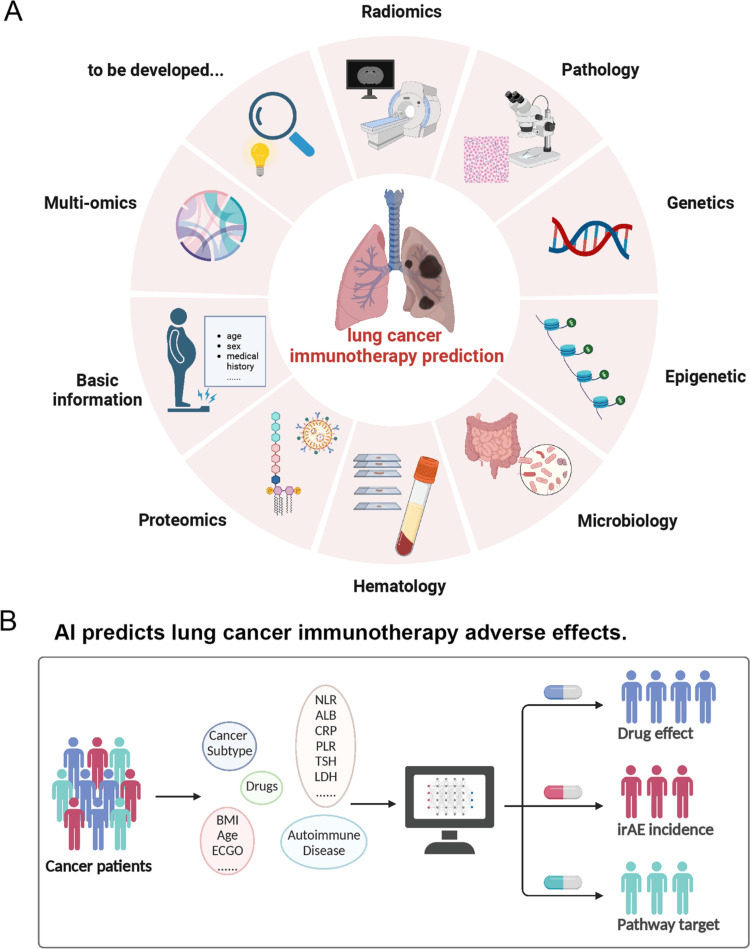Figure 4. (A) Lung cancer immunotherapy prediction methods. The utilization of AI-based technologies in lung cancer immunotherapy prediction involves the analysis of various data types such as radiomics images, pathology images, genetic information, epigenetic information, microbiology data, hematology values, proteomics data, and multi-omics data. By leveraging diverse datasets, AI can effectively predict the benefits of immunotherapy in lung cancer patients. (B) The prediction of adverse effects on lung cancer immunotherapy.
Reproduced under the terms and conditions of the Creative Commons Attribution 4.0 International License from Gao et al. [54]. Copyright © 2023 The Author(s), published by Springer Nature
AI, artificial intelligence; irAE, immune-related adverse event; NLR, neutrophil-to-lymphocyte ratio; ALB, albumin; CRP, C-reactive protein; PLR, platelet-to-lymphocyte ratio; TSH, thyroid-stimulating hormone; LDH, lactate dehydrogenase; ECGO, Eastern Cooperative Group for Oncology

